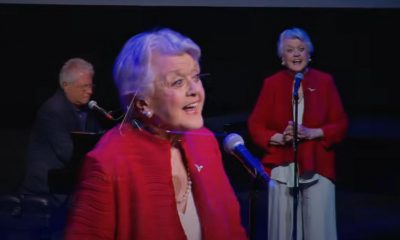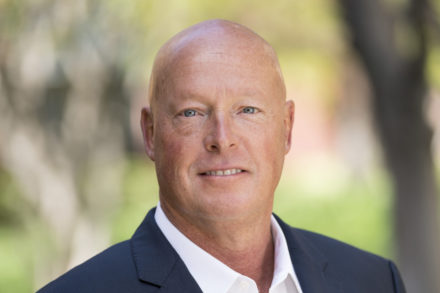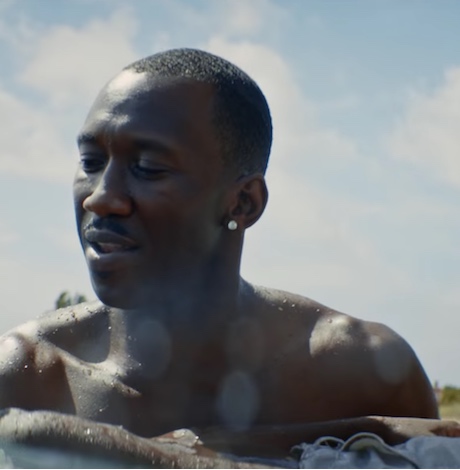Arts & Entertainment
Luke Evans talks being openly gay in Hollywood
the actor says he prefers to keep his private life to himself
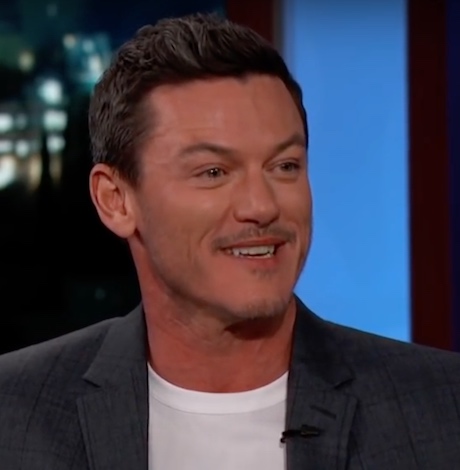
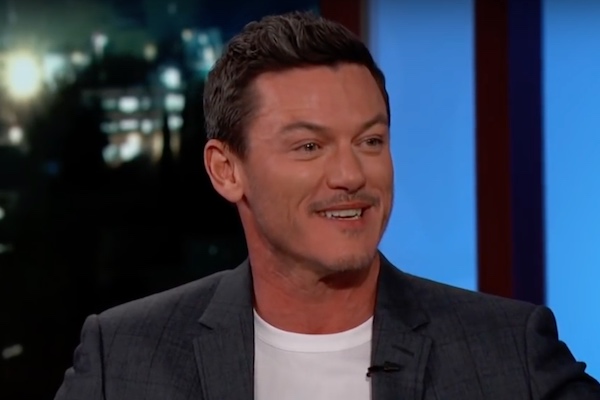
(Screenshot via YouTube.)
Luke Evans has opened up about what it’s like for him being openly gay in Hollywood.
In an interview with The Jackal, Evans says he tries to “keep my personal life and my private life separate.”
“As an actor you have to keep some sort of enigma and mystery,” Evans, who stars as Gaston in “Beauty and the Beast,” says. “There’s a dignity to keeping private. I’m trying to keep a bit of dignity to my private life and to protect the people in my life. Like my family. They don’t do press. They don’t do interviews. I don’t get photographed with them. Although everyone knows they’re my mum and dad in the Valleys. It’s the choice I’ve made.”
As for if a gay actor could play a leading action hero Evans, who got his breakout role in “Clash of the Titans” in 2010, says he doesn’t think an actor’s personal life has much to do with their acting ability.
“I don’t know how ‘Hollywood’ as you call it, thinks. I don’t think about it. I don’t feel they’re connected. Talent, success, what you do in your personal life – I don’t see how one should have an effect on the other. I don’t think I’d be in this business if I felt that I was not being employed because of who I am in my personal life,” Evans says.
Italy
Olympics Pride House ‘really important for the community’
Italy lags behind other European countries in terms of LGBTQ rights

The four Italian advocacy groups behind the Milan Cortina Winter Olympics’ Pride House hope to use the games to highlight the lack of LGBTQ+ rights in their country.
Arcigay, CIG Arcigay Milano, Milano Pride, and Pride Sport Milano organized the Pride House that is located in Milan’s MEET Digital Culture Center. The Los Angeles Blade on Feb. 5 interviewed Pride House Project Manager Joseph Naklé.
Naklé in 2020 founded Peacox Basket Milano, Italy’s only LGBTQ+ basketball team. He also carried the Olympic torch through Milan shortly before he spoke with the Blade. (“Heated Rivalry” stars Hudson Williams and Connor Storrie last month participated in the torch relay in Feltre, a town in Italy’s Veneto region.)
Naklé said the promotion of LGBTQ+ rights in Italy is “actually our main objective.”
ILGA-Europe in its Rainbow Map 2025 notes same-sex couples lack full marriage rights in Italy, and the country’s hate crimes law does not include sexual orientation or gender identity. Italy does ban discrimination based on sexual orientation in employment, but the country’s nondiscrimination laws do not include gender identity.
ILGA-Europe has made the following recommendations “in order to improve the legal and policy situation of LGBTI people in Italy.”
• Marriage equality for same-sex couples
• Depathologization of trans identities
• Automatic co-parent recognition available for all couples
“We are not really known to be the most openly LGBT-friendly country,” Naklé told the Blade. “That’s why it (Pride House) was really important for the community.”
“We want to use the Olympic games — because there is a big media attention — and we want to use this media attention to raise the voice,” he added.

Naklé noted Pride House will host “talks and roundtables every night” during the games that will focus on a variety of topics that include transgender and nonbinary people in sports and AI. Another will focus on what Naklé described to the Blade as “the importance of political movements now to fight for our rights, especially in places such as Italy or the U.S. where we are going backwards, and not forwards.”
Seven LGBTQ+ Olympians — Italian swimmer Alex Di Giorgio, Canadian ice dancers Paul Poirier and Kaitlyn Weaver, Canadian figure skater Eric Radford, Spanish figure skater Javier Raya, Scottish ice dancer Lewis Gibson, and Irish field hockey and cricket player Nikki Symmons — are scheduled to participate in Pride House’s Out and Proud event on Feb. 14.
Pride House Los Angeles – West Hollywood representatives are expected to speak at Pride House on Feb. 21.
The event will include a screening of Mariano Furlani’s documentary about Pride House and LGBTQ+ inclusion in sports. The MiX International LGBTQ+ Film and Queer Culture Festival will screen later this year in Milan. Pride House Los Angeles – West Hollywood is also planning to show the film during the 2028 Summer Olympics.
Naklé also noted Pride House has launched an initiative that allows LGBTQ+ sports teams to partner with teams whose members are either migrants from African and Islamic countries or people with disabilities.
“The objective is to show that sports is the bridge between these communities,” he said.
Bisexual US skier wins gold
Naklé spoke with the Blade a day before the games opened. The Milan Cortina Winter Olympics will close on Feb. 22.
More than 40 openly LGBTQ+ athletes are competing in the games.
Breezy Johnson, an American alpine skier who identifies as bisexual, on Sunday won a gold medal in the women’s downhill. Amber Glenn, who identifies as bisexual and pansexual, on the same day helped the U.S. win a gold medal in team figure skating.
Glenn said she received threats on social media after she told reporters during a pre-Olympics press conference that LGBTQ+ Americans are having a “hard time” with the Trump-Vance administration in the White House. The Associated Press notes Glenn wore a Pride pin on her jacket during Sunday’s medal ceremony.
“I was disappointed because I’ve never had so many people wish me harm before, just for being me and speaking about being decent — human rights and decency,” said Glenn, according to the AP. “So that was really disappointing, and I do think it kind of lowered that excitement for this.”
Bars & Parties
SoCal queer singles come together as we celebrate LA’s Top Eligible LGBTQ Singles at the Abbey this Thursday!
Join us Thursday, February 12th at 7 pm, as we honor LA’s Top Eligible LGBTQ Singles as nominated by you!
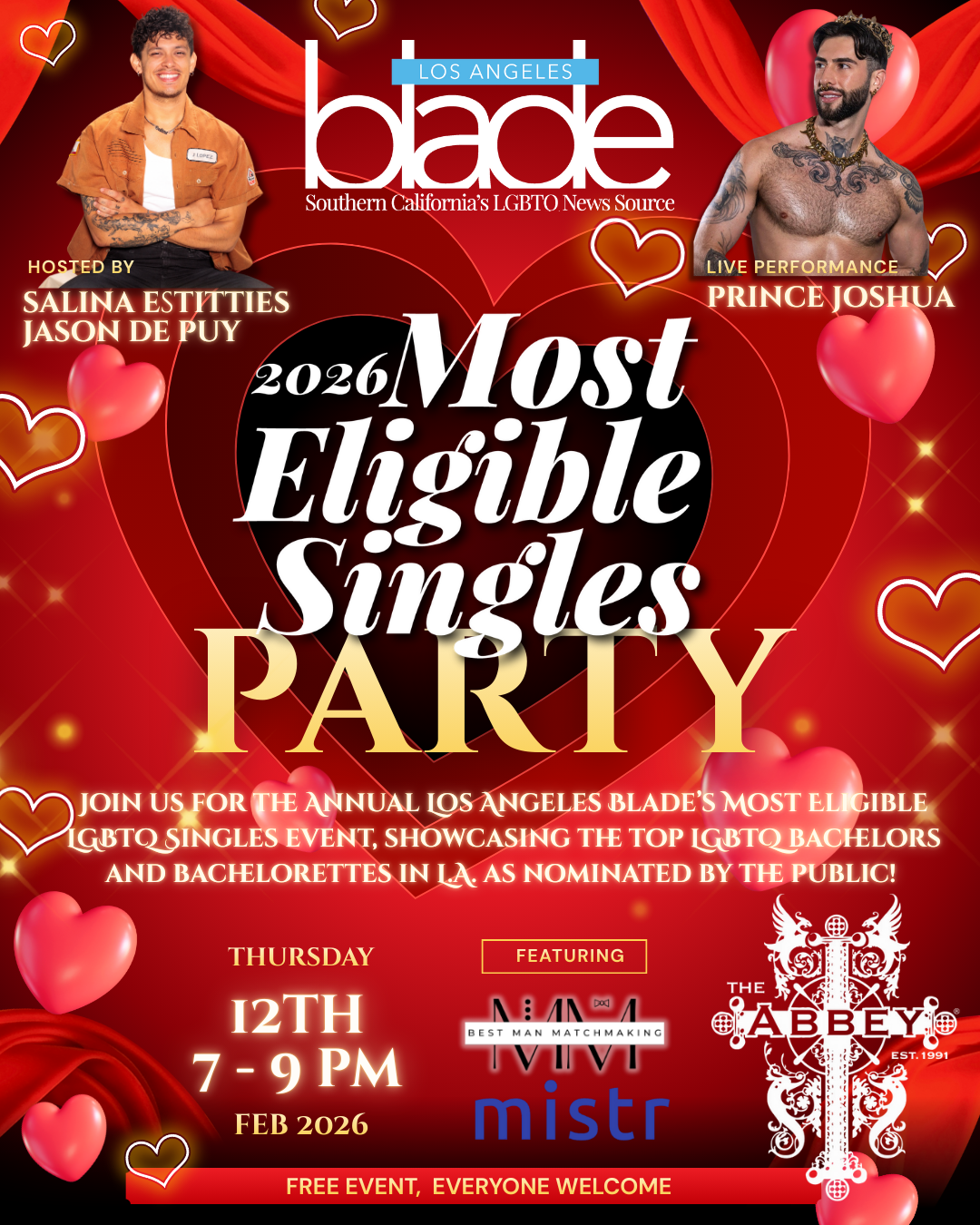
Join us Thursday, February 12th at 7 pm, as we honor LA’s Top Eligible LGBTQ Singles as nominated by you!
Mix and mingle with other singles for this fun and casual event hosted by Salina EsTitties with a live performance by LA Blade’s Best of LA Best Local Musician and Go-Go Boy 2025, Prince Joshua. The evening will also feature an appearance by the MISTR men with Matchmaker Daniel Cooley from Best Man Matchmaking on hand. Will you find your Valentine? This event is free and open to everyone!
The Top Most Eligible LGBTQ Singles has been a long-standing event with our sister paper, the Washington Blade. In celebration of the Los Angeles Blade’s continued growth in the community, we decided to bring it to LA! Last month, we opened nominations, and the community came through, suggesting a wide variety of LGBTQ singles who are bringing some light and love to SoCal.
Let’s meet Los Angeles Blade’s Top Eligible Singles for 2026:
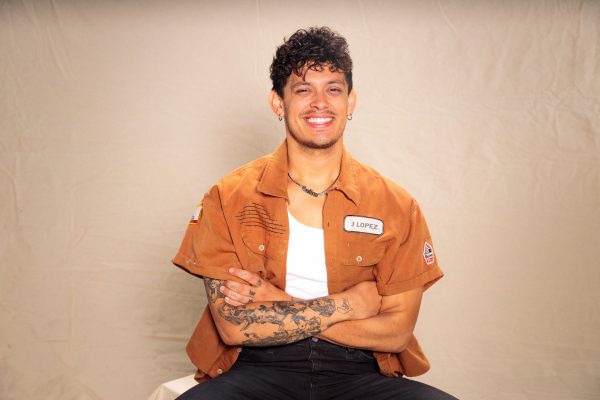
Jason De Puy aka Salina EsTitties
This self-described “most single drag queen on Earth,” Jason, is also known as Salina EsTitties and became a national sensation for her appearance on RuPaul’s Drag Race season 15. California-born and raised, he has spent the past decade as a leader not only in the Los Angeles drag community and sober community, but as a “booked and blessed diva” in the entertainment industry at large. Committed to social justice activism, she partners annually with with the AIDS Life Cycle x LGBT Center of Los Angeles, the Alliance of Housing and Healing through an annual Best in Drag Show, and the Gay Men’s Chorus of Los Angeles.
Age: 35 Occupation: Artist/Performer, Entrepreneur, Producer
How do you identify?: Gay…He/Him
What are you looking for in a mate?
I’m looking for a partner who’s secure in themselves and understands the ride of being an artist. Financial stability matters, but more so, I want someone who respects the vision—someone who’s excited to invest in our growth, not threatened by it. I value compassion, a shared understanding of the entertainment world, and a mutual push toward staying active and adventurous. Emotional awareness and spiritual curiosity are huge, too—conversations that go deeper. And, of course, someone who has their own passions—separate from mine—so we can both grow as individuals while being each other’s biggest supporters. And, you know, someone who can get sexy when the moment calls for it! And trust…there will be many moments, so stamina is important. ;)
Biggest turn off:
My biggest turnoff is a lack of kindness, especially toward service workers or anyone in a vulnerable role. If someone can’t treat others with respect, it’s an immediate no. I’m also turned off by someone who’s not willing to grow or self-reflect—emotional immaturity is a big no-no for me.
Biggest turn on:
I love playful flirtation and a partner who’s not shy about initiating—whether that’s a text or making the first move. Great communication, being touchy-feely, and making me feel wanted are all key. I’m in a place where I want to be pursued, not doing all the chasing. Oh, and big hands, someone bigger in stature than me, cause I’m a big girl.
Hobbies:
I’ve structured my life so that a lot of my passions are tied to my work—creativity, performing, and crafting immersive experiences. Outside of that, I crochet in the evenings to unwind. Lately, I’ve reconnected with bowling, something I did with my dad, and I’m now in my second bowling league season—new ball and all! I also love cinema; I’m a wannabe cinephile in the making, always up for film discussions and trips to the movies. Right now, I’m on a Marilyn Monroe kick and diving into Stella Adler interviews—I love watching conversations about the craft of acting and how movies/music/productions are made.
What is your biggest goal for 2026?
My biggest goal for 2026 is to become truly secure in myself—owning the confidence in the success I’ve built. I have exciting projects on the horizon that will expand my creativity—whether that’s music, events, or other expressions of who I am. But beyond the work, I want to feel grounded, fully in my body, and passionate about everything I’m creating. Ultimately, my goal is to feel that solid sense of inner security, while being respected, celebrated, and—yes—paid accordingly for the work I love.
Pets, Kids or Neither?
I absolutely love dogs—especially big, loyal, friendly protectors, like a sweet pit bull—but I’m open to even the little yappers charming their way into my heart. As for kids, it’s something I’d only consider if my partner and I were truly aligned. Right now, I’m not personally focused on having children myself, but if I’m in love and my partner is in a place where they’re ready and able to fully support that journey—both emotionally and financially—I’d be open. But for now, kids aren’t on my immediate horizon.
Would you date someone whose political views differ from yours?
I’ve been in a relationship before where our political views didn’t align, and I realized it’s a dealbreaker for me. For something long-term, I need us to share core values. So, no, I wouldn’t be able to date someone whose political views strongly conflict with mine—especially when it comes to fundamental issues of human rights and equality.
Celebrity crush:
I’m not huge on celebrity crushes, but let’s be honest—Chris Hemsworth, Chris Evans—any superhero named Chris is totally a vibe. But truly, I’m more about real-life connection, so I save my real crush energy for someone who steps into my reality!
Name one obscure fact about yourself:
I have 14 years sober, oh, and I was actually eliminated on the Steps of Knowledge on the adult reboot of Legends of the Hidden Temple. Turns out, the 12 steps won’t save ya on the steps of knowledge!
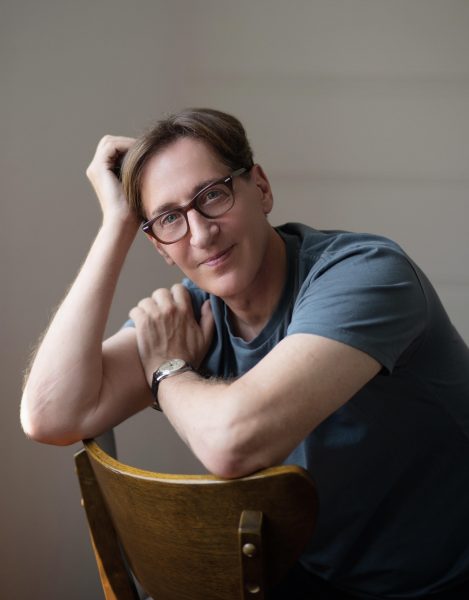
Stan Zimmerman
Stan has two WGA noms for Best Comedy Writing: The Golden Girls, Roseanne. Stan also wrote and produced Gilmore Girls, co-created the Lifetime sitcom Rita Rocks, and wrote both Brady Bunch movies. He was Host/Showrunner on Sean Hayes’ Bravo reality show Situation: Comedy. TRWshows publishes and licenses Stan’s work — Yes, Virginia, Silver Foxes, and right before I go. Stan’s book, The Girls: From Golden to Gilmore, was released by Indigo River Publishing. This past September, he made his Off-Broadway acting and playwrighting debut with his suicide awareness play, right before I go, after touring with it across America.
Age:66 Occupation: Writer/Director/Producer
How do you identify?: Gay
What are you looking for in a mate? Smart, funny, curious, stylish, empathetic
Biggest turn off: Selfish, closed minded, insensitive
Biggest turn on: Fun and flirty
Hobbies: Running, swimming, music, theatre, travel
What is your biggest goal for 2026?
Keeping my heart open and challenging myself creatively and emotionally
Pets, Kids or Neither? Maybe a cat one day
Would you date someone whose political views differ from yours?
Probably not. Right now, it’s more than just politics; it’s about one’s moral core.
Celebrity crush: Still Brad Pitt or Derek Hough. Okay, Shawn Mendes
Name one obscure fact about yourself: I used to study ballet.
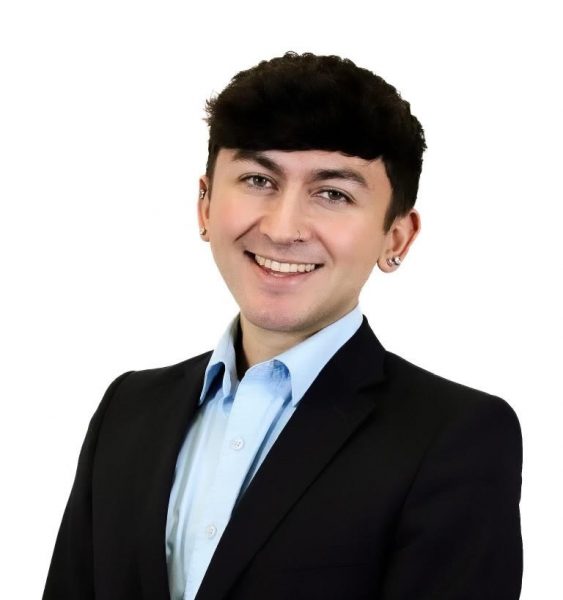
Joshua Marin-Mora
Joshua works throughout the Westside as a government office field representative. He also serves as the Political Vice President for Stonewall Young Democrats. As a proud Latino and LGBTQ+ young person, Joshua is committed to furthering SYD’s mission and engagement throughout the greater LA area. When not at community events, you can find him out with friends in West Hollywood or recharging at home, getting lost in a new book.
Age: 26 Occupation: Field Representative
How do you identify: he/him
What are you looking for in a mate?
I’m looking for a mix of adventure and stability. Emotional maturity is a must. Looking for someone who knows how to communicate and be consistent.
Biggest turn off:
Someone with no plans. If you don’t have plans, whether personal or professional, it’s probably not going to work out.
Biggest turn on: Someone who is decisive. And bonus points if you can dance.
Hobbies: Love traveling, reading, volunteering, and going out with friends.
Biggest goal for 2026: I’m going to focus more on my health and fitness.
Kids, Pets or neither? Yes, pets…maybe kids.
Would you date someone whose political views differ from yours? No.
Celebrity crush: Jonathan Bailey
Name one obscure fact about yourself: I like to eat the fries first.
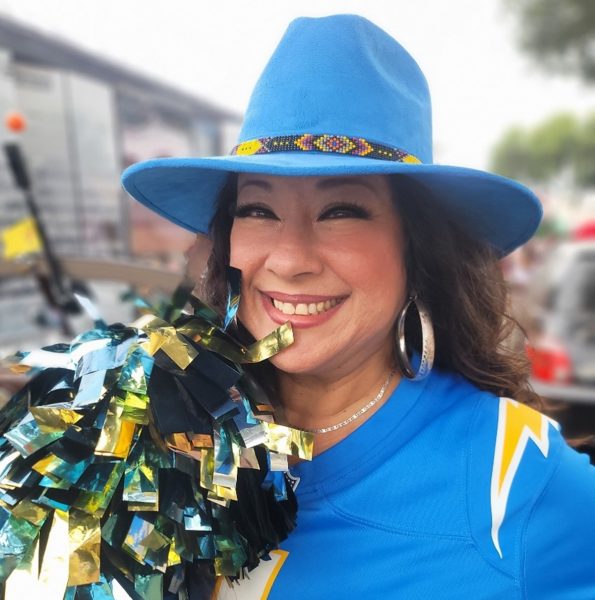
Liliana Perez
Liliana T. Pérez serves as the Cultural Affairs Director for the Los Angeles Chargers and is responsible for building strategic partnerships within California’s dynamic and versatile economic, cultural, and social sectors. Prior to joining the Chargers, Pérez had made a career in public service, holding senior leadership roles in the office of six Speakers of the California Assembly.
Pérez has been recognized for her advocacy work on behalf of marginalized populations, including the LGBTQ community, immigrants, and women. Pérez remains passionate about social justice and civil rights causes and is active with numerous organizations. Her volunteer and philanthropic work includes serving on the Commission on the Status of Women for the City of Los Angeles and on the Los Angeles Unified School District’s Redistricting Commission.
Age: 55 Occupation: Sr. Director of Cultural Affairs, LA Chargers
How do you identify?: Bisexual
What are you looking for in a mate?
Beautiful, passionate, work hard & play hard…successful, community advocate, honest, loves to dance bachata, merengue, and Rock en Espanol!
Biggest turn off: Cheaters, liars, half ass everything
Biggest turn on:
Hell Yes Energy! Loves live theatre, live entertainment, stand-up comedy, enjoys volunteering & raising money for worthy causes; enjoys cooking and eating… so I can share my love language by also cooking.
Hobbies: I don’t have any.
What is your biggest goal for 2026? Buy a vacation/ retirement home in Puerto Vallarta
Pets, Kids or Neither? None.
Would you date someone whose political views differ from yours? No!
Celebrity crush: Big time crazy crush is Paola Ramos… dreamy!
Name one obscure fact about yourself: I love Neil Diamond.
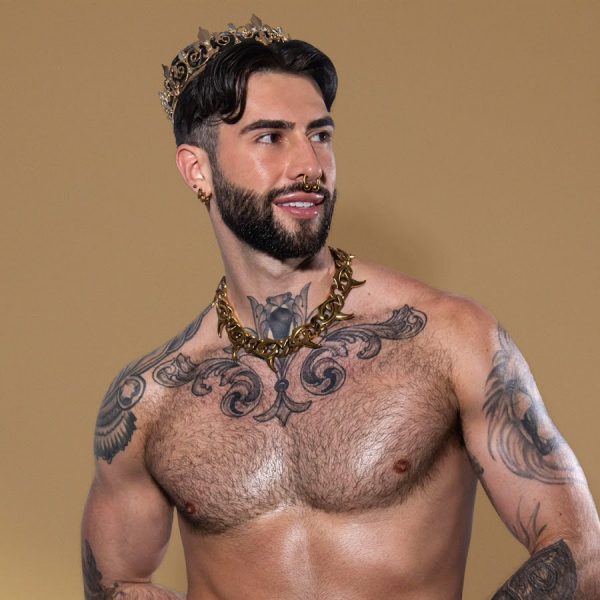
Prince Joshua
Prince Joshua is a natural-born performer driven by movement, fashion, and unapologetic self-expression. From nightlife stages to Pride festivals, he brings high energy, bold charisma, and a signature presence that blends dance, music, and style. He performs as a dancer, rapper, and MC, known for electrifying shows, fearless flair, and a radiant edge. His work has been featured on OUTtv and on major stages across the country, and in 2025, he was honored as Go-Go of the Year and Local Music Artist of the Year. He is also the creator and host of EDYN, an EDM dance party at The Abbey WeHo, where music, movement, and energy collide.
Age: 28 Occupation: Party Promoter and Go-go
How do you identify?: Gay
What are you looking for in a mate? Passion, success, drive, loyalty, and connection.
Biggest turn off: Seeing someone treat others poorly.
Biggest turn on:
Knowing someone is putting effort into wanting to understand and take care of me as a person and not just focus on the physical attraction.
Hobbies: Weightlifting, yoga, and making music.
What is your biggest goal for 2026? To make my party EDYN a staple in West Hollywood.
Pets, Kids or Neither? Neither
Would you date someone whose political views differ from yours?
I don’t think I could if the foundation of our views differs. If there are slight differences that aren’t affecting the rights of others, then I could potentially.
Celebrity crush: Bad Bunny
Name one obscure fact about yourself: I can do the splits all 3 ways
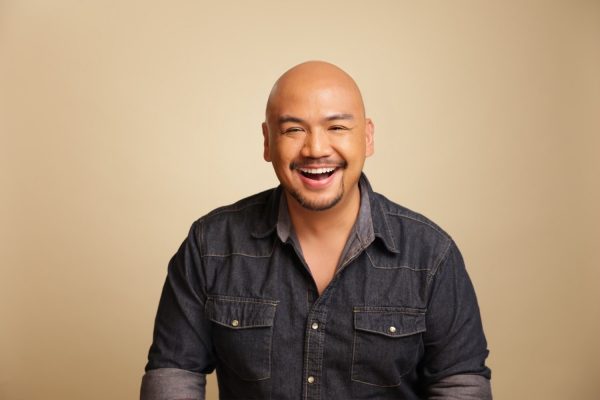
Cecilio Asuncion
Cece Asuncion (he/him) is an out and proud gay Filipino producer, director, and advocate based in Los Angeles, CA. He is the founder of Slay Model Management, the world’s first transgender-exclusive modeling agency, and a GLAAD Media Award-winning producer of STRUT on the Oxygen Network, co-produced with Whoopi Goldberg. His groundbreaking documentary What’s The T?, which follows the lives of five transgender women, received global acclaim, screening at festivals like the Palm Springs International Film Festival, where it won the Audience Choice Award, and Rio Gay de Cinema in Brazil. As a sought-after speaker on transgender advocacy, he has presented at NYU, Stanford, and the University of Colorado, using his platform to educate and inspire.
Most recently, he founded and serves as Executive Director for the CinePride Film Festival, fostering the next generation of LGBTQIA+ filmmakers, ensuring they have the resources and support to bring their visions to life.
Age: 49 Occupation: TV Producer
How do you identify?: Gay
What are you looking for in a mate?
Chemistry, obviously—but chemistry that holds up on a random Tuesday. Someone smart, warm, and grounded, who can laugh at dumb shit, communicate honestly, and isn’t afraid of real intimacy. I’m attracted to people who are passionate about what they do and generous in how they show up. Bonus points if they’re emotionally fluent and can keep up in both a deep conversation and a ridiculous one.
Biggest turn off:
Arrogance and inconsistency. If someone is charming but unreliable, that’s an immediate buzzkill.
Biggest turn on:
Competence. Watching someone be really good at what they do—and still be kind about it.
Hobbies:
Exploring new food spots, cooking for friends, avoiding hiking, traveling, and building creative projects that probably should count as hobbies at this point.
What is your biggest goal for 2026? World domination.
Pets, Kids or Neither? Pets 100%!
Would you date someone whose political views differ from yours?
Not in this climate, or ever, no.
Celebrity crush: Seth Rogen
Name one obscure fact about yourself: I hate long walks on the beach.
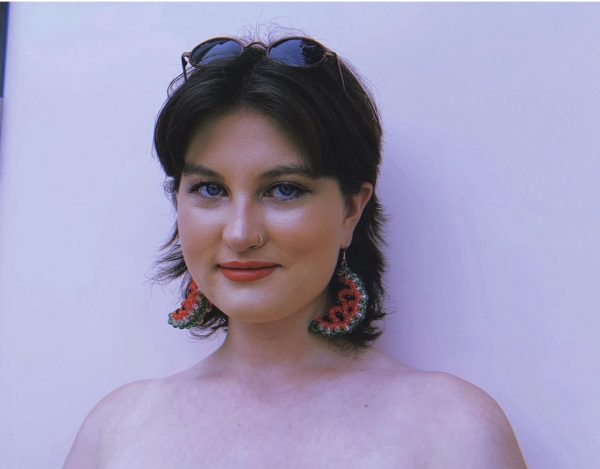
Brynn Allen
Brynn was born in Seattle, Washington, and was raised on Occupied Duwamish Territory. She graduated with a BA in Theatre Arts from the University of Puget Sound. Although she focused on theatre making and acting in college, she also pursued studies in other fields such as criminal justice, filmmaking, gender/queer studies, politics, interpersonal communication, and communication through technology. Social justice and advocacy are always a priority in her artistic work and everyday life.
Age: 27 Occupation: Actor
How do you identify? Sapphic Queer
What are you looking for in a mate?
I am looking for a partner who is a classic Dyke. Someone who knows how to build a fire, appreciates the arts, is emotionally mature, able to take initiative romantically, used to play softball, has a strong sense of self, confident in their individuality, ideally able to lift me, has Socialist values, is community-oriented, able to riff, and embraces whimsy.
Biggest turn off: Cockiness or being mean, because why are you acting like that?
Biggest turn on: When someone has a well-curated closet, or they’re a good dancer.
Hobbies:
Sitting in a park and reading, going to the beach, going to see live music, short hikes or long walks in nature, supporting my friends’ creative projects, shopping at an antique mall, and watching movies at the nearest AMC.
What is your biggest goal for 2026? To prioritize my creative endeavors and take more risks
Pets, Kids or Neither? Neither
Would you date someone whose political views differ from yours? No ❤️
Celebrity crush: All members of MUNA
Name one obscure fact about yourself: I used to be an Alpine Ski racer.
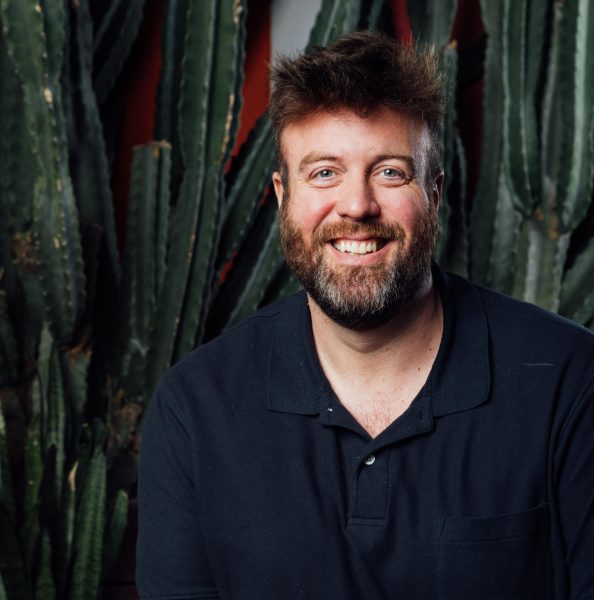
Patrick Murray
Patrick is a Los Angeles–based entrepreneur, former opera singer, and certified triple-threat conversationalist, fluent in three languages, making him perfect for dinner date banter. After years onstage, he traded songs for sausages and founded Franzl’s Franks, an Austrian-inspired food brand that mixes European flair, queer joy, and serious culinary chops. Equal parts creative and ambitious, Patrick is tall, personable, and unapologetically himself. He’s proof that the most eligible single in LA can sing, sell, and serve.
Age: 40 Occupation: Entrepreneur
How do you identify? Gay
What are you looking for in a mate?
Someone ambitious, so we inspire each other to be better, patient, and kind through life’s chaos, with the wit to match mine as we laugh our way through adventures.
Biggest turn off:
A lack of curiosity about the world. Someone who doesn’t strive for more or isn’t interested in personal growth probably wouldn’t be the best match. Also, chewing with your mouth open is instant no.
Biggest turn on:
Big brown puppy dog eyes and a kind smile make me melt. A man who initiates and knows what he wants, because I can get shy sometimes.
Hobbies:
Interior design and fantasy house hunting, baking cakes no one asked for, taking walks to unlock my daydreams, going out dancing or going to the opera, Unsolved Mysteries marathons
What is your biggest goal for 2026?
To grow my business, fall in love, and swan dive from the top of a building into a tiny cup of water
Pets, Kids or Neither? Love pets! Kids are wonderful via FaceTime.
Would you date someone whose political views differ from yours?
I mean, I could probably date a moderate democrat. That’s about as far right as I’d go.
Celebrity crush: Cooper Koch, Francois Arnaud, Hasan Minhaj (and Piker!)
Name one obscure fact about yourself:
My parents named me my name so it would look good in the newspapers when I scored touchdowns…but now I’m in the paper for being gay and single, so the joke’s on you, Mom!
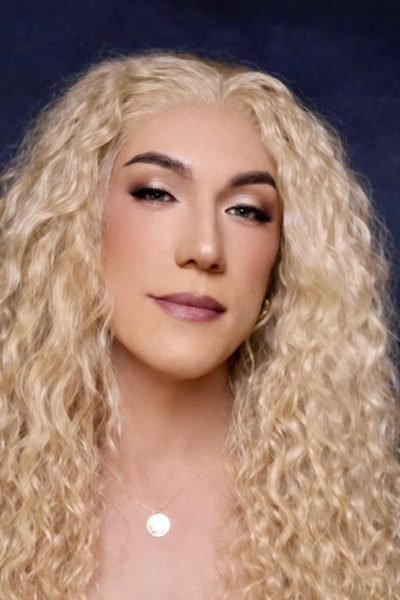
Hera Anderson
Hera Anderson is an award-winning transgender actor, film producer, and writer raised in Europe and settled down in the USA a few years ago, pursuing her career in the entertainment industry. She’s been in the industry for more than 15 years, proudly creating her own history. She’s been performing in drag queen shows, developing her own film projects, and writing her new stories to share.
Known for her confidence, warmth, and bold presence, she brings authenticity and charisma to every space she enters. Hera is passionate about storytelling, connection, and building meaningful relationships both on and offstage.
Age: 40 Occupation: Actress/Writer/Producer
How do you identify? Transgender Woman
What are you looking for in a mate?
Peace and passion. Someone emotionally mature, consistent, and kind, with a playful side. I’m building a big creative life, so I’m into a partner who’s self-sufficient, communicative, and genuinely excited to grow together.
Biggest turn off:
Bad hygiene, flakiness, cruelty, and negative energy. If you’re disrespectful to people “below” you, I’m out.
Biggest turn on:
Warm eyes, a great smile, confidence without ego, emotional intelligence, and someone who’s generous with affection. I love a creative mind and a person who plans dates instead of just texting “wyd.”
Hobbies:
Trying new restaurants, dancing, movies, writing/creating, live shows, beach walks, exploring LA, and traveling whenever I can. Also, I’m a sucker for a cute coffee spot.
What is your biggest goal for 2026?
To fall in love with someone ready for commitment and a shared future.
Pets, Kids or Neither?
Puppy mom, and yes, I’m open to having kids in the future with the right person
Would you date someone whose political views differ from yours?
We can disagree on opinions, not on human rights. Respect, empathy, and basic decency are non-negotiable.
Celebrity crush: Jason Statham, Chris Pratt, Matthew McConaughey, Mark Wahlberg
Name one obscure fact about yourself:
I’ll go out “for one coffee” and somehow leave with a full day’s plan and three new ideas.
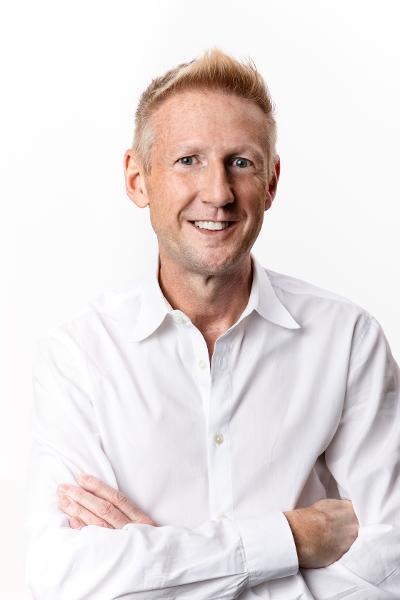
Kevin Peter Berg
Kevin is a West Hollywood–based entertainment legal and business leader with a long career in film and television. Known for his thoughtful leadership and commitment to inclusive storytelling, Kevin brings both heart and intellect to everything he does. Deeply connected to his community, he proudly supports Project Angel Food, GLAAD, and the Los Angeles LGBT Center. Off the clock, Kevin’s vibrant life in SoCal reflects his love of culture, authenticity, and living boldly at every stage. Grounded yet adventurous, he values authenticity, good conversation, and relationships built on curiosity, respect, and shared joy.
Age: 57 Occupation: General Counsel
How do you identify? Gay male
What are you looking for in a mate?
A true partner—someone with a great sense of humor, a spirit of adventure, and a love of travel. I’m drawn to men who are emotionally intuitive, secure, and confident, yet still playful and open-hearted. Bonus points if you enjoy musical theatre and a good romantic comedy as much as a holiday getaway. Ultimately, I’m looking for a connection built on laughter, curiosity, and the joy of discovering life together.
Biggest turn off: Lack of communication and connection – physically and verbally
Biggest turn on: Confidence
Hobbies:
Travel & exploration, fitness, social connections with friends (movie, live theatre, brunch, trivia nights)
What is your biggest goal for 2026? Focus on new career opportunities
Pets, Kids or Neither? Pets (one cat)
Would you date someone whose political views differ from yours?
No, as that would create too many opportunities for conflict
Celebrity crush: Ryan Reynolds
Name one obscure fact about yourself: I lip-synch songs in front of the bathroom mirror
Let’s hear it for our inaugural Top LGBTQ Eligible Singles! Join us this Thursday, February 12th, at 7 pm at The Abbey to celebrate.
Puerto Rico
Bad Bunny shares Super Bowl stage with Ricky Martin, Lady Gaga
Puerto Rican activist celebrates half time show

Bad Bunny on Sunday shared the stage with Ricky Martin and Lady Gaga at the Super Bowl halftime show in Santa Clara, Calif.
Martin came out as gay in 2010. Gaga, who headlined the 2017 Super Bowl halftime show, is bisexual. Bad Bunny has championed LGBTQ+ rights in his native Puerto Rico and elsewhere.
“Not only was a sophisticated political statement, but it was a celebration of who we are as Puerto Ricans,” Pedro Julio Serrano, president of the LGBTQ+ Federation of Puerto Rico, told the Washington Blade on Monday. “That includes us as LGBTQ+ people by including a ground-breaking superstar and legend, Ricky Martin singing an anti-colonial anthem and showcasing Young Miko, an up-and-coming star at La Casita. And, of course, having queer icon Lady Gaga sing salsa was the cherry on the top.”
La Casita is a house that Bad Bunny included in his residency in San Juan, the Puerto Rican capital, last year. He recreated it during the halftime show.
“His performance brought us together as Puerto Ricans, as Latin Americans, as Americans (from the Americas) and as human beings,” said Serrano. “He embraced his own words by showcasing, through his performance, that the ‘only thing more powerful than hate is love.’”
Books
New book explores homosexuality in ancient cultures

‘The Queer Thing About Sin’
By Harry Tanner
c.2025, Bloomsbury
$28/259 pages
Nobody likes you very much.
That’s how it seems sometimes, doesn’t it? Nobody wants to see you around, they don’t want to hear your voice, they can’t stand the thought of your existence and they’d really rather you just go away. It’s infuriating, and in the new book “The Queer Thing About Sin” by Harry Tanner, you’ll see how we got to this point.
When he was a teenager, Harry Tanner says that he thought he “was going to hell.”
For years, he’d been attracted to men and he prayed that it would stop. He asked for help from a lay minister who offered Tanner websites meant to repress his urges, but they weren’t the panacea Tanner hoped for. It wasn’t until he went to college that he found the answers he needed and “stopped fearing God’s retribution.”
Being gay wasn’t a sin. Not ever, but he “still wanted to know why Western culture believed it was for so long.”
Historically, many believe that older men were sexual “mentors” for teenage boys, but Tanner says that in ancient Greece and Rome, same-sex relationships were common between male partners of equal age and between differently-aged pairs, alike. Clarity comes by understanding relationships between husbands and wives then, and careful translation of the word “boy,” to show that age wasn’t a factor, but superiority and inferiority were.
In ancient Athens, queer love was considered to be “noble” but after the Persians sacked Athens, sex between men instead became an acceptable act of aggression aimed at conquered enemies. Raping a male prisoner was encouraged but, “Gay men became symbols of a depraved lack of self-control and abstinence.”
Later Greeks believed that men could turn into women “if they weren’t sufficiently virile.” Biblical interpretations point to more conflict; Leviticus specifically bans queer sex but “the Sumerians actively encouraged it.” The Egyptians hated it, but “there are sporadic clues that same-sex partners lived together in ancient Egypt.”
Says Tanner, “all is not what it seems.”
So you say you’re not really into ancient history. If it’s not your thing, then “The Queer Thing About Sin” won’t be, either.
Just know that if you skip this book, you’re missing out on the kind of excitement you get from reading mythology, but what’s here is true, and a much wider view than mere folklore. Author Harry Tanner invites readers to go deep inside philosophy, religion, and ancient culture, but the information he brings is not dry. No, there are major battles brought to life here, vanquished enemies and death – but also love, acceptance, even encouragement that the citizens of yore in many societies embraced and enjoyed. Tanner explains carefully how religious credo tied in with homosexuality (or didn’t) and he brings readers up to speed through recent times.
While this is not a breezy vacation read or a curl-up-with-a-blanket kind of book, “The Queer Thing About Sin” is absolutely worth spending time with. If you’re a thinking person and can give yourself a chance to ponder, you’ll like it very much.
Sports
Michael Ferrera is paving a path of safety and liberation for queer athletes
The Blade interviewed the C.E.O. of Out Athlete Fund, which has sponsored six out athletes competing in the 2026 Winter Olympics and is creating the first U.S. Olympic Pride House in 2028.
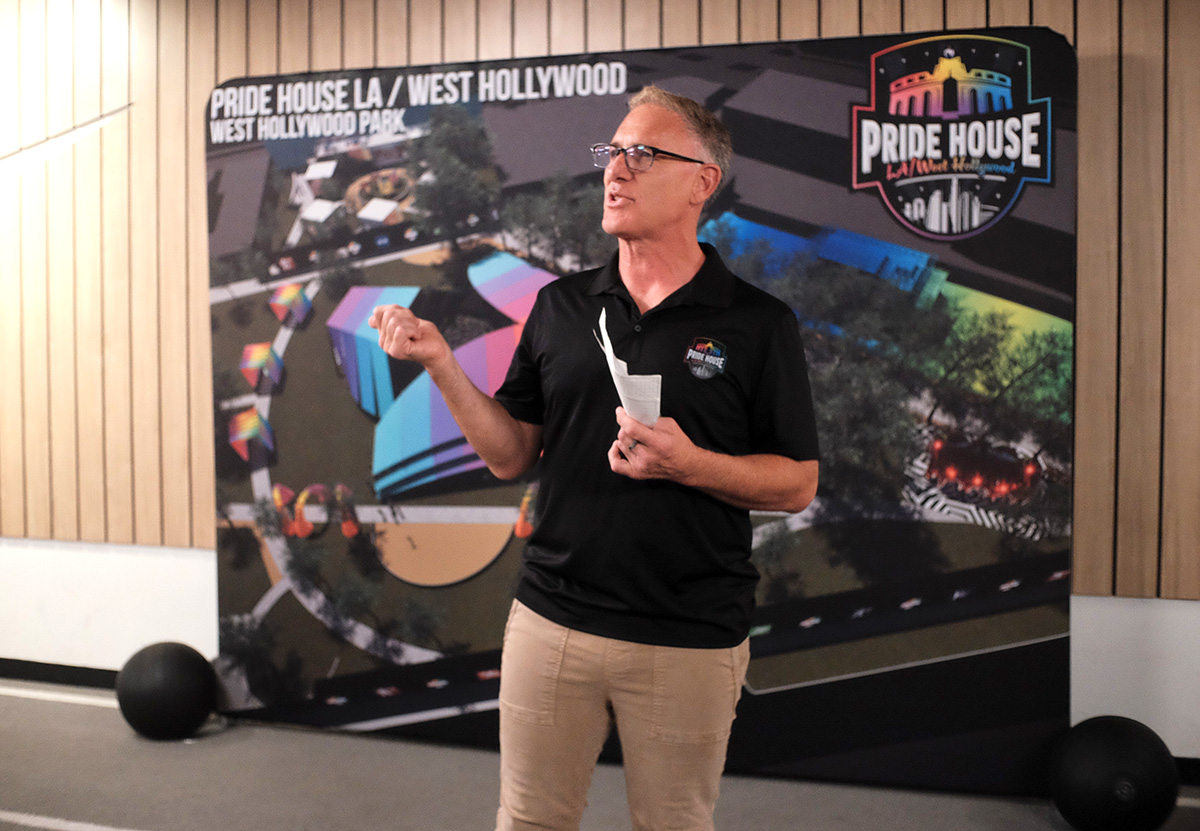
Michael Ferrera was 10 when he first watched U.S. figure skating duo Tai Babilonia and Randy Gardner cascade like currents across the ice, their arms forming delicate shapes in sync as they jumped, spun, and dominated national and world competitions in the late 1970’s.
As a young closeted kid, Ferrera’s admiration for the skaters and the sport was a source of comfort: a place where he could see men embody the nuances of gender. “I saw this mixture of masculinity and grace and expression, and that they were fully themselves as men,” Ferrera told the Blade.
Today, after decades of LGBTQ+ non profit work and leadership in Los Angeles, Ferrera is directing his passion for advocacy and queer affirmation towards that initial childhood love: sports. He leads Out Athlete Fund, an organization that supports and uplifts queer athletes, championing their visibility in public arenas. Recently, Out Athlete Fund announced its sponsorship of six U.S. athletes competing at the 2026 Milano Cortina Winter Olympics and Paralympics, which began today.
Out Athlete Fund is also producing Pride House L.A./West Hollywood, their most ambitious undertaking yet. With over $1 million in funding support from L.A. County and the City of West Hollywood, the organization will take over West Hollywood Park for the 2026 FIFA World Cup and the 2028 Summer Olympics and Paralympics.
Pride House L.A./West Hollywood will be the first-ever U.S. LGBTQ+ hospitality house for the Olympic Games, joining a burgeoning fight for queer representation in professional sports.
The first Pride House was created in 2010 during the Winter Olympics in Vancouver, forming a foundation that Ferrera hopes to build upon. “We’re trying to lift the movement [and] create a through line,” Ferrera said, who is weaving stronger connective roots between the various Pride Houses that come before him, and the ones that will follow.
The Los Angeles Blade and Washington Blade announced today that it will serve as the exclusive queer media sponsor for Pride House, and will cover the organization’s plans, interview queer athletes, and report on upcoming events.
We sat down with Ferrera for the first of these exclusive interviews. In this conversation, Ferrera tells us about the growth of Out Athlete Fund, what people can expect from Pride House L.A./West Hollywood at the FIFA World Cup and the 2028 Olympics, as well as the importance of LGBTQ+ safety, representation, and celebration in professional sports.
How did your journey with Out Athlete Fund begin?
This [opportunity] with Out Athlete Fund came out of the pandemic. That was a tough time. L.A. Pride got shut down in 2020. For those of us in the nonprofit world, there weren’t new jobs. That became quite a journey, trying to consult and be creative about how to get through that time.
And then, when [lockdown] was over, my friend Erik Braverman, who’s also on the board for Out Athlete Fund, came to me and said, “Michael, there’s this great thing going on. My friend Cyd Ziegler from OutSports and Les Johnson from Gay Games are involved. I think you should meet them, because they need somebody to run their nonprofit, and you have that experience.”
He knew that I love sports. I was born into a Boston, New England family, and you don’t have any choice. So I met Cyd, [who] really is one of the preeminent voices in this world of out athletes, and it just seemed like a good fit. Honestly, the first two years, working with Out Athlete Fund, we didn’t have money to pay staff. Everybody was volunteering, including me.
We’re really excited because we haven’t been doing this very long. Our first real event was last year. At the end of the summer, we [screened] A League of Their Own at the Autry Museum. [For today’s] Milan opening ceremony watch party, we have almost 600 RSVP’s.
We’re focused on our visibility mission and raising money to support athletes. We have six at Milan. When we started the year, our goal was to sponsor two, so this is growing so fast. I’m just so excited.
When it comes to the Winter Games in Milan, they’re happening under a government that is similar to ours in its anti-LGBTQ+ attitudes. How does that affect your mission of supporting athletes on world stages in places that aren’t accepting of their queerness?
Our sponsorship of these athletes is much more than just writing them a check. It’s letting them know that they have a community behind them. That’s really what Pride House does. It’s bringing together fans and allies so that these athletes feel like they have a community. And the fans know that there are people like them who are excelling in these sports and don’t have the artificial ceilings that are placed upon them.
Now I think there’s 44, at the moment, out athletes at Milan, and that’s a record for the Winter Olympics. That’s so important: that they know that they have the support of fans in their community, financially, emotionally, in a country that is right now pretty hostile to them, and to have Pride House there.
So that’s what we’ve got to do. We have to stake a claim, right? And with Pride House L.A./West Hollywood, we want to do that here. We’ll be the first Olympics Pride House in the United States, and we want to grow that [and send the message]: We are here. Our athletes are here. We’ve got their backs. You should, too. I think that’s how we make slow change.
What will be unique about Pride House L.A. and what will programming look like?
We want to [translate] the power of Los Angeles. We have the entertainment community here. We have a lot of business here, and it’s an exciting city, and it’s got a lot of flash.
When we take over West Hollywood Park, we will have the whole park. We have 17 days, 12 hours a day to program things. We’ll have a concert stage. We’ve had meetings in the last couple of weeks about A-list celebrities who will come and do a tribute concert to athletes. And we’ll have a smaller stage too that’ll have community performances, meet and greets with athletes. [There will be] panel discussions inside an exhibition hall, where there’ll be a million TV screens so that people can watch every single competition that’s going on.
[There will also be] big screens outside and on the concert stage. We’re going to have Paralympic sports exhibitions, a history museum about our athletes, where a lot of art will be involved. We’ll have a restaurant. We’ll have food trucks. We’ll have bars. Almost everything will be free of charge to the public. Competitions are expensive to go to — now, you can come watch with your community and have fun.
We’re still figuring it all out, because our imaginations are the only things that limit what we can do in all those days and with all those hours: everything from a gay employee group having an afternoon together, to having the youth at the Laurel Foundation come for a camp day, to a seniors day.
I want my community to be up front. I want them to see Pride House reflect them, because if it doesn’t reflect them, it doesn’t reflect all the athletes that are potentially out there too. So that’s a big part of the job. It’s making sure this community has a voice and has the opportunity to contribute and help us make it the best it can be.
There’s so much community activation in the works. What can athletes expect at the hospitality house?
One of my proudest things that we’ve established for Pride House L.A./West Hollywood is that we’re going to have a dedicated athlete area. We’ll have shuttles that go between UCLA, where the Olympic athlete village will be, and this second athlete village. This is already sanctioned by the Athlete Relations Director for LA 28.
[Queer athletes will] know that there’s a space that they can go to outside of the [general] athlete village, outside of the politics and the limitations that are there. They can come to this place that’s really for them, and they’ll have their own entrance. The dream of that is that if an athlete comes from Egypt or Iran or Russia — some place where they feel like they can’t be themselves, [where] laws are against them — they can come here and see what experiences they can have being in a place that’s safe and inclusive and celebratory.
That feels liberatory. Pride House can offer, even for a moment, a space where queer people can live openly as themselves when they might have to conceal themselves in the places they spend most of their time in.
When I worked at the LA LGBT Center, we had a program with Chinese activists. [They] came to the Center and were able to go through all the departments, learn about the different kinds of services, how they were provided, how we raised money, how we worked within the community, and [try to figure out how] to tailor the knowledge that we were providing to the reality that they had.
On the ground, they were getting called into the police station [for] trying to show LGBTQ+ films at a film festival. You couldn’t really say it was a film festival. You had to say it was an HIV/AIDS prevention thing, and they got found out.
I became friends with these Chinese activists, and that’s when I say: having a conversation with another human being, [it’s] not [about] the borders and the politics. You’re just two humans facing different circumstances, [questioning]: How can we make it better for each other?
How do those borders show up in sports?
What I hope is that people understand: sports is one of the last bastions of historical hostility toward our community. There are a lot of stereotypes that people still speak about every day, just to keep those walls up and those ceilings up. If you can introduce us and start to normalize that, and have more visibility, and have more athletes feeling safe and supported, it has the power to change in an incredible way. So many people get exposed to these [larger] issues because they’re exposed to sports.
It’s really powerful. Sports crosses lines: it crosses racial lines, cultural lines, national lines. The power of the Olympics is that athletes come from countries all over the world, and when you’re with somebody [in person], there’s no border there. There are the borders of maybe language or human borders, but there’s no ICE. There’s no hostility or laws or whatever coming between you. There’s just this incredible opportunity to speak to each other as two human beings and get to know each other without all of that stuff getting in the way.
In April, Out Athlete Fund plans to host a 25th annual anniversary screening of Greg Berlanti’s West Hollywood-centered film Broken Hearts Club. The organization will also host four days of festivities at Beaches Tropicana WeHo for the 2026 FIFA World Cup. The Blade will continue to provide exclusive updates on these events, as well as the six Winter Games athletes sponsored by the organization.
Kristie Song is a California Local News Fellow placed with the Los Angeles Blade. The California Local News Fellowship is a state-funded initiative to support and strengthen local news reporting. Learn more about it at fellowships.journalism.berkeley.edu/cafellows.
Arts & Entertainment
2026 Best of LGBTQ LA Readers’ Choice Award Nominations
Nominations for the Best of LGBTQ LA Awards are open from until February 15th!

It’s time to celebrate the vibrant and diverse LGBTQ+ community of Los Angeles! Nominations for the Best of LGBTQ LA Awards are open from until February 15th, giving you the chance to highlight your favorite local legends, hotspots, performers, and change-makers. Then, from February 23rd to March 6th, cast your vote for the finalists and help decide who truly represents the best of LGBTQ LA. The Best of LGBTQ LA Awards Party will be held on March 26th at The Abbey!
Use the form below or click the link HERE to nominate!
Sports
Blade, Pride House LA announce 2028 Olympics partnership
Media sponsorship to amplify stories of LGBTQ athletes
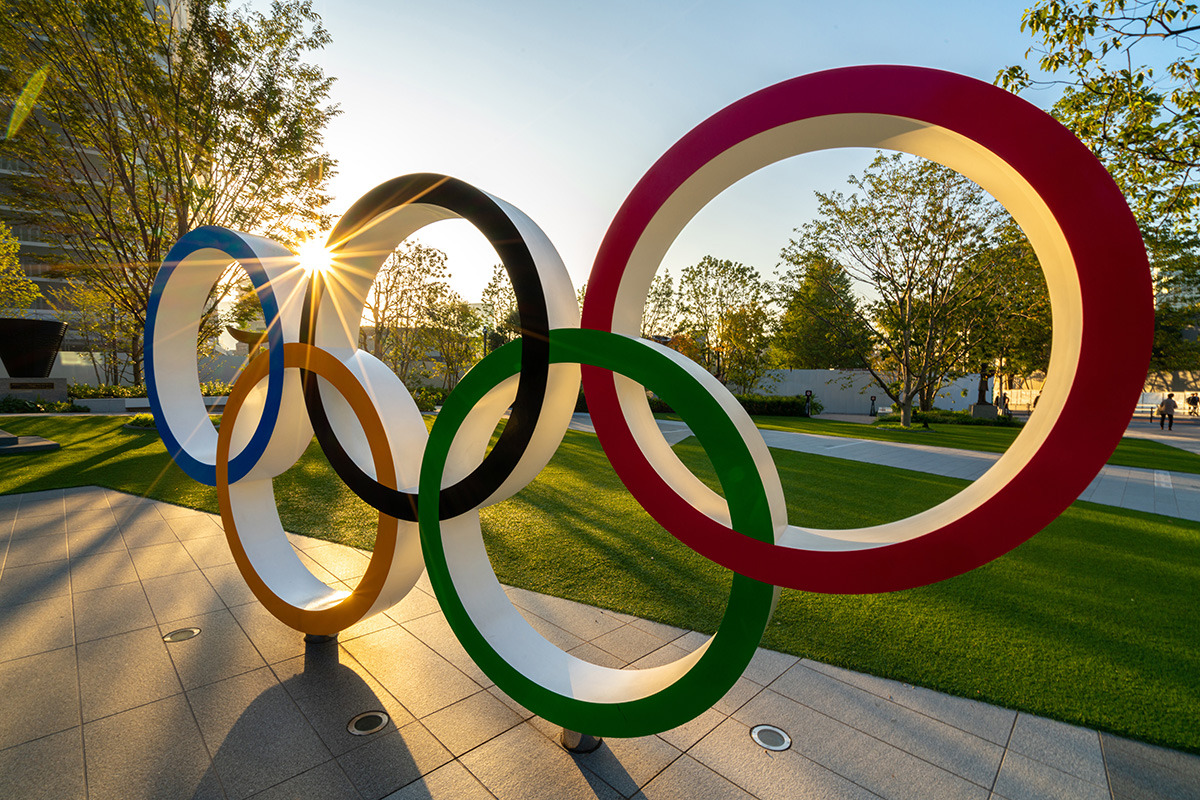
The Los Angeles Blade and Washington Blade on Friday announced a media partnership with the Out Athlete Fund, which will produce Pride House LA for the 2028 Summer Olympics.
Pride House is the home for LGBTQ+ fans and athletes that will become a destination during the L.A. Summer Games in West Hollywood in partnership with the City of WeHo. This 17-day celebration for LGBTQ+ athletes and fans will include medal ceremonies for out athletes, interactive installations, speakers, concerts, and more.
The Los Angeles Blade will serve as the exclusive L.A.-area queer media sponsor for Pride House LA and the Washington Blade will support the efforts and amplify coverage of the 2028 Games.
The Blade will provide exclusive coverage of Pride House plans, including interviews with queer athletes and more. The parties will share content and social media posts raising awareness of the Blade and Out Athlete Fund. The Blade will have media credentials and VIP access for related events.
“We are excited to partner with the Washington Blade, the oldest LGBTQ newspaper in the United States and the Los Angeles Blade, already a strong supporter of Out Athlete Fund and Pride House LA/West Hollywood,” said Michael Ferrera, CEO of Pride House LA. “Our mission is about increasing the visibility of LGBTQ+ athletes and fans to challenge the historical hostility toward our community in the sports world. Visibility is what publications like the Washington and Los Angeles publications are all about. We know they will play a key part in our success.”
“LGBTQ visibility has never been more important and we are thrilled to work with Out Athlete Fund and Pride House LA to tell the stories of queer athletes and ensure the 2028 Summer Games are inclusive and affirming for everyone,” said Blade Editor Kevin Naff.
Out Athlete Fund is a 501(c)3 designed to raise money to offset the training cost of out LGBTQ+ athletes in need of funding for training. The Washington Blade is the nation’s oldest LGBTQ+ news outlet; the Los Angeles Blade is its sister publication founded nine years ago.
a&e features
Angel McCoughtry, “Renaissance Woman”
Angel McCoughtry is a professional athlete. A two-time gold medalist, 5-time WNBA all-star, philanthropist, and now filmmaker.

“Renaissance Woman” is a term fit for a queen. Heavy is the head that wears the crown, but we’re in luck because Angel McCoughtry is a professional athlete. A two-time gold medalist, 5-time WNBA all-star, philanthropist, and now filmmaker, Angel has built career(s) defined by reinvention and an insistence on excellence at every turn.
Her move to take charge behind the camera comes at a time that feels anything but divine. In a time where stories like Heated Rivalry bring the heat (pun intended) one moment, while nearly half of all queer characters and stories are vanishing from TV the next, McCoughtry’s leadership behind the camera signals something hopeful: A refusal to let anyone or any story get left behind.
A WNBA legend, McCoughtry played ten years without pause, splitting her time between the W and overseas leagues. In college, she led the Big East Conference in scoring, rebounds, and steals, obliterating records, even the ones she herself set. The number one draft pick and Rookie of the year in ‘09, McCoughtry quickly became one of the best players the W has ever seen. Though she never officially retired, Angel hasn’t played in the W since 2022, when she was sidelined for an injury that she has since healed. (Ya hear that WNBA? Our girl is ready to come back!)
Being forced to step away from the game brought about a reckoning that is all too familiar to elite athletes everywhere: “Who are you when your body won’t let you perform?” Through detangling this identity crisis, McCoughtry found a new appreciation for storytelling, the stories we tell ourselves as well as the stories we tell the world. Angel’s innovative storytelling and directing style are inspired by basketball, as she likens herself to the Dawn Staley of film, adding, “When you allow your players to be free, they can play at their highest level, and that’s what I allow my actors to do.”
Inspired by her grandmother’s stories of playing ball in a time when women were not allowed to cross half court and had to wear skirts, Angel wants to empower resilient perspectives. “I can’t keep their stories hidden,” She says, “The women who paved the way.” Laser focused on bringing scripted sports films to the mainstream, McCoughtry says, “I’m looking for stories that resonate with the people, and I want to be the one to bridge the gap and bring women’s sports scripted content to the forefront.”
Through McCoughtry Entertainment, Angel wants to bring women’s sports to the forefront as well as genre-driven films, particularly sports-thrillers led by women. Her short film Bygones is now available to stream on Prime Video, with more projects in the barrel. Her feature-length directorial debut, Bolted, is on deck as her next project. I personally would love to see the gay women’s version of Heated Rivalry in McCoughtry’s hands, who says, “There’s a realness to it,” about the show, “That happens often, and it’s not talked about [..] that’s all over women’s sports.”
“I am obsessed with stories about overcoming adversity,” says McCoughtry, an apt throughline in Angel’s work that reflects the spirit of creativity and athleticism.
Movies
50 years later, it’s still worth a return trip to ‘Grey Gardens’
Documentary remains entertaining despite its darkness
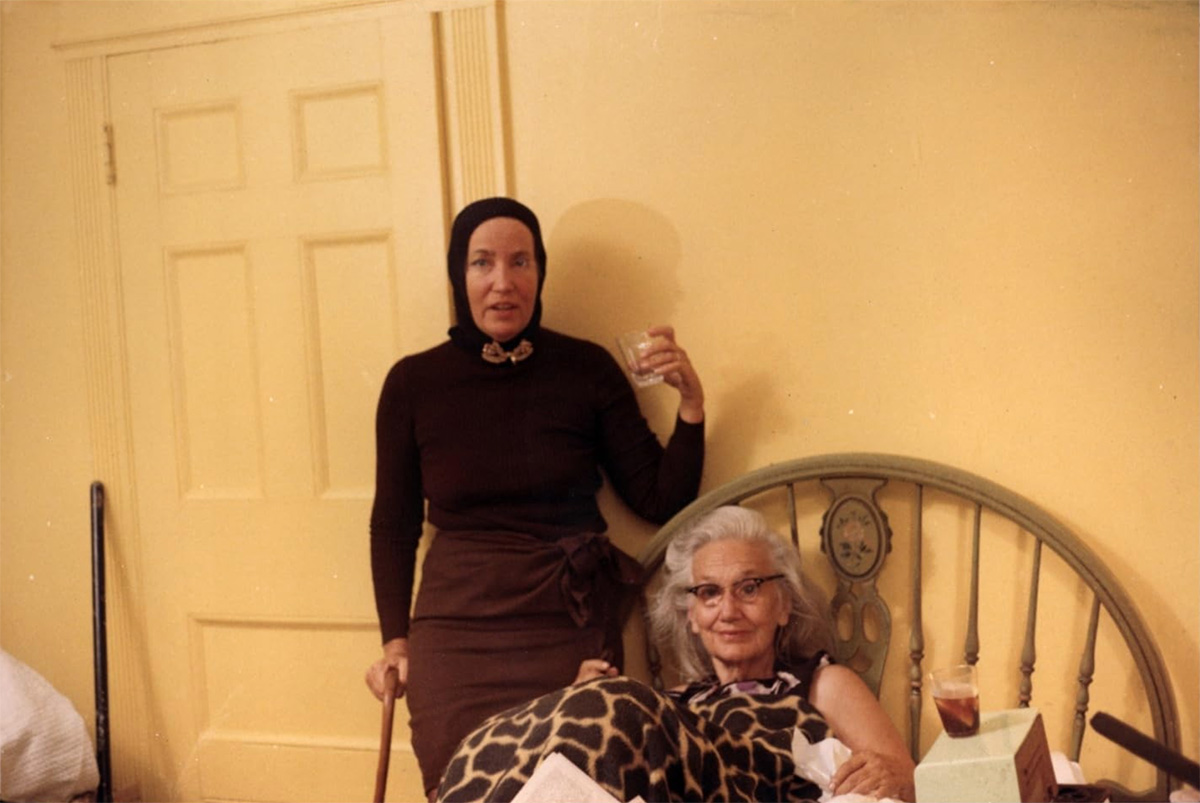
If we were forced to declare why “Grey Gardens” became a cult classic among gay men, it would be all the juicy quotes that have become part of the queer lexicon.
Celebrating the 50th anniversary of its theatrical release this month, the landmark documentary profiles two eccentrics: Edith Ewing Bouvier Beale and her daughter, Edith Bouvier Beale (known as “Big” and “Little” Edie, respectively), the aunt and cousin of former first lady Jaqueline Kennedy Onassis and socialite Lee Radziwell. Once moving within an elite circle of American aristocrats, they had fallen into poverty and were living in isolation at their run-down estate (the Grey Gardens of the title) in East Hampton, Long Island; they re-entered the public eye in 1972 after local authorities threatened eviction and demolition of their mansion over health code violations, prompting their famous relatives to swoop in and pay for the necessary repairs to avoid further family scandal.
At the time, Radziwell had enlisted filmmaking brothers David and Albert Maysles to take footage for a later-abandoned project of her own, bringing them along when she went to put in an appearance at the Grey Gardens clean-up efforts. It was their first encounter with the Beales; the second came two years later, when they returned with their cameras (but without Radziwell) and proceeded to make documentary history, turning the two Edies into unlikely cultural icons in the process.
On paper, it reads like something painful: two embittered former socialites, a mother and daughter living among a legion of cats and raccoons in the literal ruins of their former life, where they dwell on old memories, rehash old conflicts, and take out their resentments on each other, attempting to keep up appearances while surviving on a diet that may or may not include cat food. Truthfully, it is sometimes difficult to watch, which is why it’s easier to approach from surface level, focusing on the “wacky” eccentricities and seeing the Beales as objects for ridicule.
Yet to do so is to miss the true brilliance of a movie that is irresistible, unforgettable, and fascinating to the point of being hypnotic, and that’s because of the Beales themselves, who are far too richly human to be dismissed on the basis of conventional judgments.
First is Little Edie, in her endless array of headscarves (to cover her hair loss from alopecia) and her ever-changing wardrobe of DIY “revolutionary costumes,” a one-time model and might-have-been showgirl who is obviously thrilled at having an audience and rises giddily to the occasion like a pro. Flamboyant, candid, and smarter than we think, she’s also fearlessly vulnerable; she gives us access to an emotional landscape shaped by the heartbreaks of a past that’s gradually revealed as the movie goes on, and it’s her ability to pull herself together and come back fighting that wins us over. By the time she launches into her monologue about being a “S-T-A-U-N-C-H” woman, we have no doubt that it’s true.
Then there’s Big Edie, who comes across as an odd mix of imperious dowager and down-to-earth grandma. She gets her own chance to shine for the camera, especially in the scenes where she reminisces about her early days as a “successful” amateur vocalist, singing along to records of songs she used to perform as glimpses emerge of the beauty and talent she commanded in her prime. She’s more than capable of taking on her daughter in their endless squabbles, and savvy enough to score serious points in the conflict, like stirring up jealousy with her attentions to beefy young handyman Jerry – whom the younger Edie has dubbed “the Marble Faun” – when he comes around to share a feast of boiled corn-on-the-cob with them. “Jerry likes the way I do my corn,” she deadpans to the camera, even though we know it’s meant for Little Edie.
It’s not just that their eccentricities verge on camp; that’s certainly an undeniable part of the appeal, but it falls away quickly as you begin to recognize that even if these women are putting on a show for the camera, they’re still being completely themselves – and they are spectacular.
Yes, their verbal sparring is often shrill and palpably toxic – in particular, Big Edie has no qualms about belittling and shaming her daughter in an obviously calculated effort to undermine her self-esteem and discourage her from making good on her repeated threats to leave Grey Gardens. We know she is acting from fear of abandonment, but it’s cruel, all the same.
These are the moments that disturb us more than any of the dereliction we see in their physical existence; fed by nostalgia and forged in a deep codependence that neither wants to acknowledge, their dynamic reflects years of social isolation that has made them into living ghosts, going through the habitual motions of a long-lost life, ruminating on ancient resentments, and mulling endlessly over memories of the things that led them to their outcast state. As Little Edie says early on, “It’s very difficult to keep the line between the past and the present. Do you know what I mean?”
That pithy observation, spoken conspiratorially to the Maysles’ camera, sets the tone for the entirety of “Grey Gardens,” perhaps even suggesting an appropriate point of meditation through which to contemplate everything that follows. It’s a prime example of the quotability that has helped this odd little movie endure as a fixture in queer culture; for many LGBTQ people, both Edies – born headstrong, ambitious, and independent into a social strata that only wanted its women to be well-behaved – became touchstones of frustrated longing, of living out one’s own fabulousness in isolated secrecy. Add to that shared inner experience Little Edie’s knack for turning scraps into kitschy fashion (and the goofy-but-joyous flag dance she performs as a sort of climactic topper near the end), and it should be obvious why the Maysles Brothers’ little project still resonates with the community five decades later.
Indeed, watching it in today’s cultural climate, it strikes chords that resonate through an even wider spectrum, touching on feminist themes through these two “problematic” women who have been effectively banished for refusing to fit into a mold, and on the larger issue of social and economic inequality that keeps them trapped, ultimately turning them against each other in their powerlessness.
With that in mind, it’s clear these women were never filmed to be objects of ridicule. They’re survivors in a world in which even their unimaginably wealthy relatives would rather look away, offering a bare minimum of help only when their plight becomes a matter of public family embarrassment, and the resilience they show in the face of tremendous adversity makes them worthy of celebration, instead.
That’s why “Grey Gardens” still hits close to home, why it entertains despite its darkness, and why we remember it as something bittersweet but beautiful. By the end of it, we recognize that the two Edies could be any of us, which means they are ALL of us – and if they can face their challenges with that much “revolutionary” spirit, then maybe we can be “staunch” against our adversities, too.
Events
Margaret Cho joins headliner lineup for Lambda Legal’s queer comedy night
“Stand-up for Equality” takes place on Mar. 4 at the Saban Theatre, channeling the power of queer comedy and joy to raise funds for the civil rights organization.
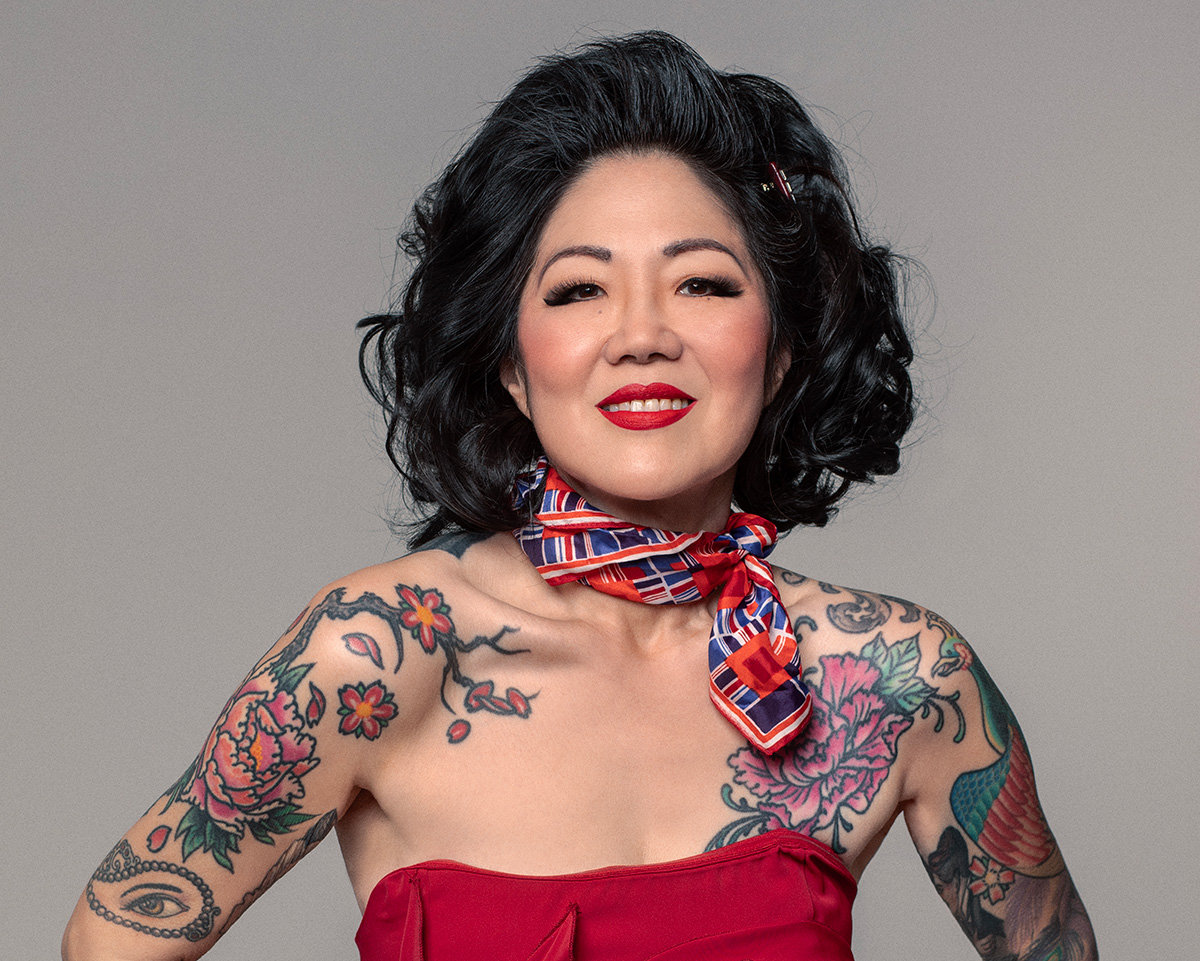
Through perilous times, queer artists, comedians, and performers have transformed personal and collective pain into honest, witty, and radical expressions of joy and empowerment. On Mar. 4, LGBTQ+ civil rights organization Lambda Legal will uplift some of these voices in its inaugural “Stand-Up for Equality” event.
Margaret Cho, Matteo Lane and Tig Notaro will headline the showcase, which features stand-up acts from both established and emerging voices in queer comedy. Other notable performers include Dina Martina, Roz Hernandez, Rachel Scanlon, Guy Branum, Solomon Georgio and Dana Goldberg.
Their eclectic comedic styles and impacts are wide-sweeping: from Lane’s hilarious, crowd-work-based “advice specials” and Branum’s poignant, internet series “What the Old Gays Remember” to Cho’s biting and punchy commentaries on race and gender and Notaro’s warm, charming presence both on stage and on her “Handsome” podcast. Each performer’s work has boldly expanded the country’s broader comedy scene, exposing more and more viewers to a dynamic, vast pool of queer art, humor, and history.
Proceeds from “Stand-Up for Equality” will go towards supporting Lambda Legal, an organization that has championed LGBTQ+ policy and rights since 1973. Recently, Lambda Legal joined a trio of civil rights organizations that are representing and filing challenges in support of two trans female athletes defending their rights to participate and compete in school sports at the Supreme Court.
As Lambda Legal battles for the protection of queer communities, events like “Stand-Up for Equality” emphasize the necessity of queer joy and its ability to fuel relief and resistance. For Lambda Legal CEO Kevin Jennings, this evening of laughter and rebellion offers queer folks a chance to rise up against an administration that uplifts and advances ant-LGBTQ+ policy and sentiment — and to directly support an organization fighting against it.
“Activism isn’t a sidebar for our community; it’s part of our survival, expression, and our legacy,” said Jennings, in a press release. “We must all rise to meet this moment, and I am thrilled these comedians are going to help us to continue to fight the fight, while also allowing us the opportunity to gather together and laugh.”
Cho, a “huge fan” of Lambda Legal, recognizes the importance of standing up for the organizations that are doing vital work to make sure queer community members have safe spaces and can access legal support, healthcare, housing, and other crucial resources against the hostility of anti-LGBTQ+ policy. “I’m grateful for their long legacy of protecting, advocating, and advancing our rights; and their work is more important now than it ever was,” Cho said in a press release.
“Stand-Up for Equality” takes place on Wed. Mar. 4 at 8 p.m. at the Saban Theatre in Beverly Hills. Tickets begin at $62. More information can be found at Lambda Legal’s event site.
Kristie Song is a California Local News Fellow placed with the Los Angeles Blade. The California Local News Fellowship is a state-funded initiative to support and strengthen local news reporting. Learn more about it at fellowships.journalism.berkeley.edu/cafellows.
-
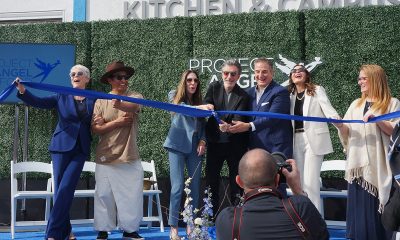
 Los Angeles2 days ago
Los Angeles2 days agoProject Angel Food is now able to feed 10,000 people daily with expanded building
-
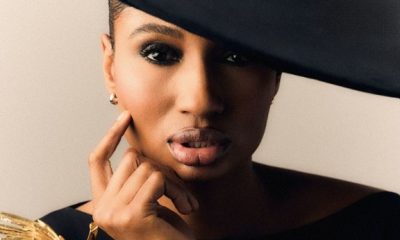
 a&e features4 days ago
a&e features4 days agoAngel McCoughtry, “Renaissance Woman”
-
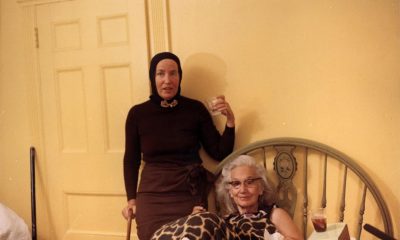
 Movies4 days ago
Movies4 days ago50 years later, it’s still worth a return trip to ‘Grey Gardens’
-
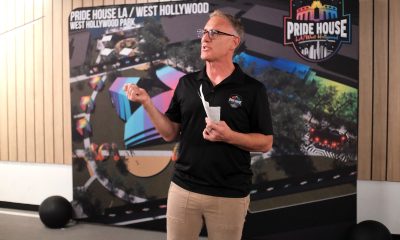
 Sports3 days ago
Sports3 days agoMichael Ferrera is paving a path of safety and liberation for queer athletes
-
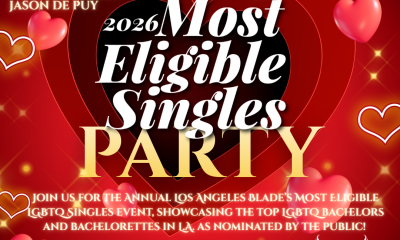
 Bars & Parties8 hours ago
Bars & Parties8 hours agoSoCal queer singles come together as we celebrate LA’s Top Eligible LGBTQ Singles at the Abbey this Thursday!
-

 Arts & Entertainment3 days ago
Arts & Entertainment3 days ago2026 Best of LGBTQ LA Readers’ Choice Award Nominations
-
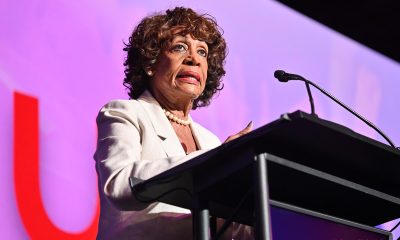
 AIDS and HIV2 days ago
AIDS and HIV2 days agoCongresswoman Maxine Waters introduces new resolution for National Black HIV/AIDS Awareness Day
-

 Sports3 days ago
Sports3 days agoBlade, Pride House LA announce 2028 Olympics partnership
-
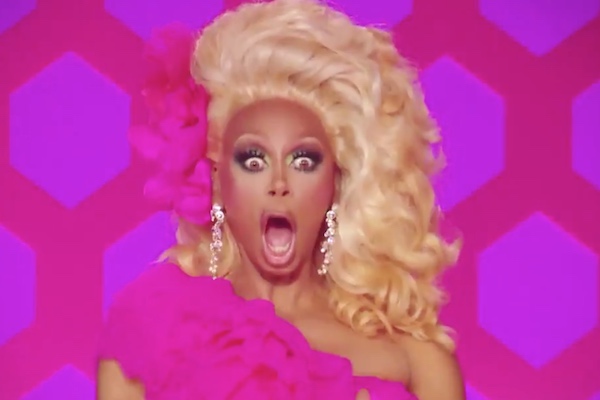
 Commentary1 day ago
Commentary1 day agoAre we done with ‘Drag Race?’
-

 Books1 day ago
Books1 day agoNew book explores homosexuality in ancient cultures

